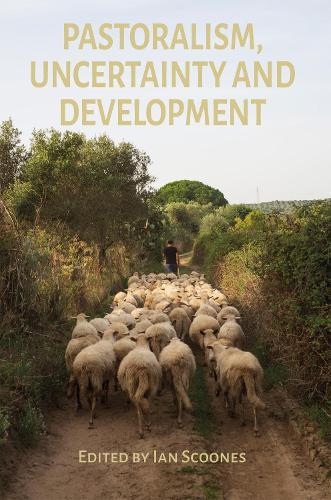Overview
In the drylands and mountains where pastoralists live, uncertainty is everywhere. In these settings, negotiating access to resources, navigating volatile markets, making use of varying social relations in times of stress, and responding to conflict and complex political dynamics is essential if livelihoods are to be generated. Pastoralism – the extensive, often mobile use of rangelands – is a vitally important livelihood practice globally. Rangelands cover more than half the world’s land surface, supporting many millions of people and livestock, often in harsh and hostile environments. The book’s chapters – with case studies from Africa, Asia, and Europe – explore how pastoral mobility is sustained, how resources are managed, how markets are combined, how social protections are provided, and how patterns of accumulation and investment are sustained in a more globalized, interconnected world. Focusing on the attributes of flexibility, adaptation, innovation, and learning for generating reliability, the book offers wider lessons for development in pastoral areas the world over that go beyond the rigid modes of planning, management, and control.
Full Product Details
Author: Ian Scoones (Research Fellow, Institute of Development Studies (IDS)) ,
Shibaji Bose ,
Roopa Gogineni ,
Natasha Maru
Publisher: Practical Action Publishing
Imprint: Practical Action Publishing
Dimensions:
Width: 15.60cm
, Height: 1.20cm
, Length: 23.40cm
Weight: 0.450kg
ISBN: 9781788532440
ISBN 10: 1788532449
Pages: 156
Publication Date: 30 May 2023
Audience:
Professional and scholarly
,
Professional & Vocational
Format: Hardback
Publisher's Status: Active
Availability: In Print

This item will be ordered in for you from one of our suppliers. Upon receipt, we will promptly dispatch it out to you. For in store availability, please contact us.
Author Information
Ian Scoones is a professor at the Institute of Development Studies, University of Sussex. He is an agricultural ecologist by original training but today works on questions of policy around land, agriculture, and agrarian change, mostly in Africa. He is the principal investigator of the ERC-funded PASTRES programme (http://pastres.org). Shibaji Bose is a creative consultant and a visual-methods researcher. His work draws on long-term visual ethnography and participatory visual action research in remote and climatically fragile zones in South Asia. Roopa Gogineni is a director and photographer focused on historical memory and modes of resistance. She has an MSc in African Studies from the University of Oxford, where she researched the construction of media narratives around Somalia. Natasha Maru is a multidisciplinary social scientist and policy consultant working on pastoral development. She has recently finished a PhD with the PASTRES programme at the Institute of Development Studies, University of Sussex, UK, where she studied the temporal experiences of mobility among the Rabari pastoralists of western India. Tahira Mohamed is an anthropologist from Marsabit County in northern Kenya. She recently completed her doctoral research under the PASTRES programme at the Institute of Development Studies, University of Sussex. Michele Nori is a tropical agronomist with a further specialization in rural sociology and specific expertise in the resource management and livelihood systems of agro-pastoral communities. Linda Pappagallo has a background in research on the political economy of managing resources, which has focused on understanding the political economy of pastoral production, migration and collective management, particularly in the Mediterranean region. Giulia Simula is an agrarian and food movement researcher and activist originally from Sardinia, Italy. Masresha Taye is a development practitioner focusing on African dryland systems. He is interested in research, development, and policy work on drought and conflict-prone areas, disaster risk financing, anticipatory technologies/innovations for pastoral populations, and climate change and uncertainty. Palden Tsering (Chinese Pinyin: Huadancairang) possesses an MSc from the Durrell Institute of Conservation Ecology University of Kent, UK and a PhD from the Institute of Development Studies, University of Sussex, UK, as part of the PASTRES programme.




